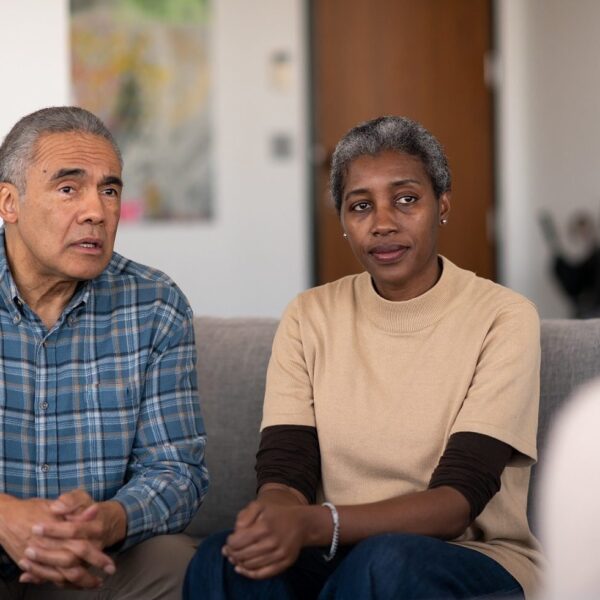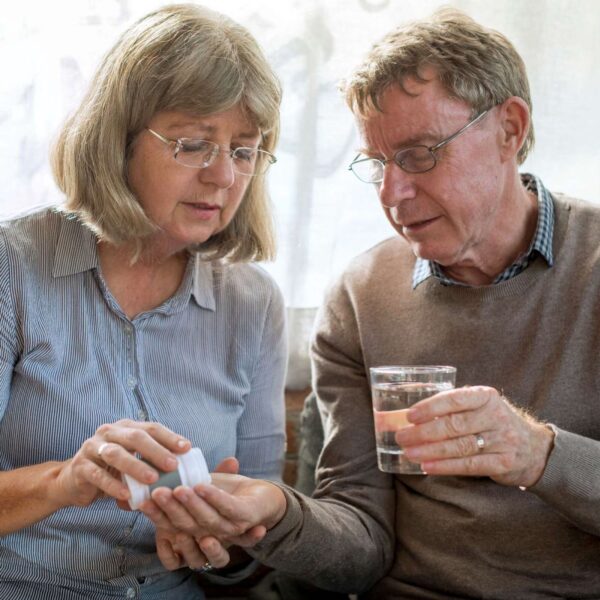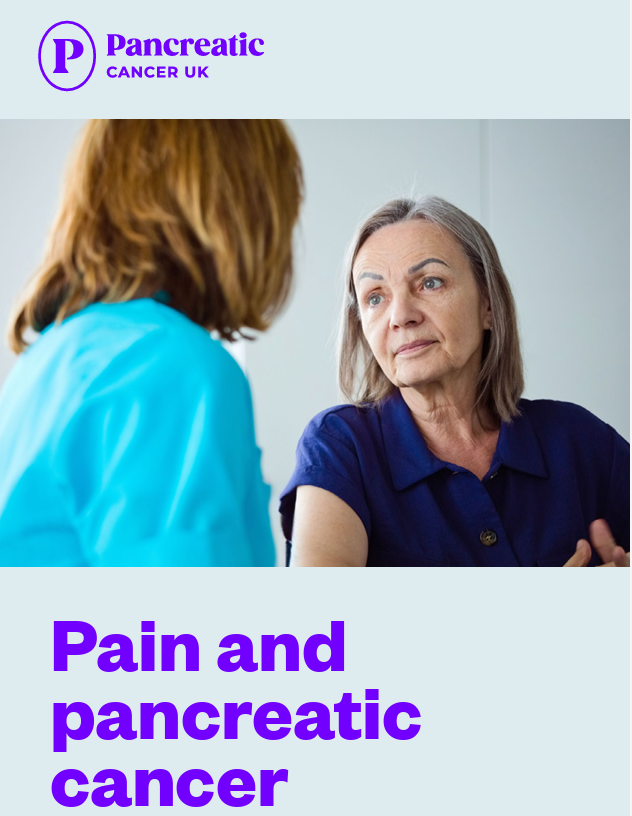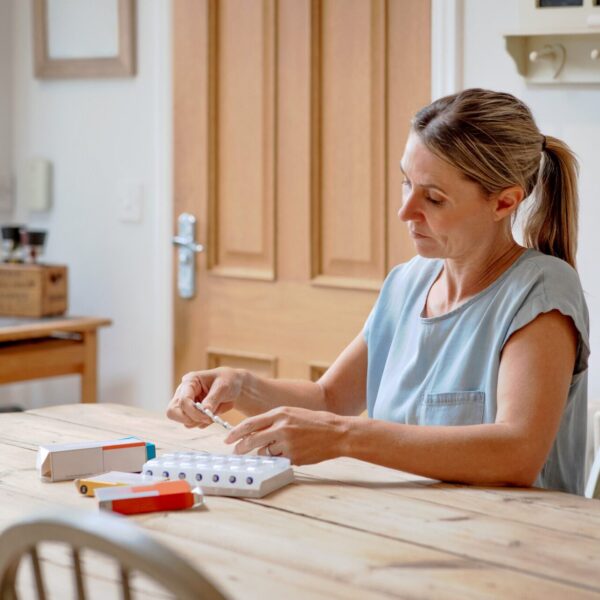Watch our video about managing pain
Our specialist nurse, Jeni, explains why pancreatic cancer can cause pain and how pain is managed. Mark, Becki and Sharon talk about how pain affected them, and what helped to reduce their pain.


Pain is your body's way of telling you that something isn't right. Both the cancer and some treatments can cause pain. But pain can be managed, so ask for help as soon as you can.

There are a few different types of pain that people with pancreatic cancer may get. Read about these and find out how they are managed.

Different health professionals, including your hospital team, GP or district nurse, may help manage your pain.
Our specialist nurse, Jeni, explains why pancreatic cancer can cause pain and how pain is managed. Mark, Becki and Sharon talk about how pain affected them, and what helped to reduce their pain.

A range of painkillers may be used in treating pancreatic cancer pain including paracetamol, non-steroidal anti-inflammatory drugs (NSAIDS) and opioids.

There are different types of opioid painkillers, including weaker and stronger opioids. Find out how these are used and what side effects they can cause.
To read more about managing pancreatic cancer pain, download our booklet, Pain and pancreatic cancer
You can also order a free physical copy.


Your doctor or nurse may suggest drugs or treatments that are usually used to treat other health conditions, but can also be used to relieve pancreatic cancer pain.

A nerve block is a treatment that blocks nerves from sending messages to the brain. It can be used to treat pancreatic cancer pain.

There is support available to help you deal with pancreatic cancer and pain. There are also some things you can do that might help.
Our specialist nurses can answer your questions about managing pain and provide emotional support. Speak to one of our nurses on our free Support Line on 0808 801 0707.

References
Email us at publications@pancreaticcancer.org.uk for references to the sources of information used to write this information.
Acknowledgements
We would like to thank the following people who reviewed our information on Pain and pancreatic cancer.
Updated April 2025
Review date April 2028

5 December 2024
Operable pancreatic cancer stories
Alice began to feel unwell while on holiday in July 2023. She was diagnosed with pancreatic cancer and has since had chemotherapy and surgery. Alice i...

30 June 2023
Operable pancreatic cancer stories
Andrew had an abnormal blood test during a routine health screen and later developed jaundice. He had a stent put into his bile duct and a few weeks l...

5 November 2024
Inoperable pancreatic cancer stories
Christine was 56 when she was diagnosed with stage 4 pancreatic cancer. She shares her experience of this diagnosis and her subsequent treatment. Chri...